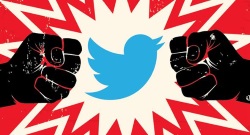BY CHRISTOPHER CAEN
Theory Associates
www.theoryassociates.com
One of the wonderful things about working in technology is watching the amazing and unexpected things that come out of Silicon Valley. After decades of working here I still can’t believe some of the things that people come up with. But with the need to create the newest, coolest, and most breakthrough, people sometimes forget to ask themselves why they are doing it. In other words, just because something can be done, doesn’t mean it should be done.

During the first dot com landrush, we saw the valley filled with companies trying to create this new breakthrough product. And the result was companies that were filed under the category “a solution in search of a problem.” These products did really cool things, but did they really solve a problem? Did they allow us to do something that we couldn’t do before? Having worked for a VRML company at one point (you kids can look that up), I can attest what this looks like up close.
This thought came to mind last Wednesday. The day before a long holiday weekend (PR experts will tell you this is the best time to deliver questionable news), Twitter announced that they were changing some functionality in the newest release of the Twitter mobile app. Not much, just the little jewel that Twitter was going to track every app you have or install on your mobile device.
The reason, of course, is the obvious one: colleting more data to drive more personalized ads to us consumers. It also is the latest in a series app-driven purchases by Twitter including MoPub and TapCommerce, all in recognition that apps are becoming the de facto front door to the mobile web. It’s a war that’s being waged between Google, Twitter, and Facebook, and will just get more pitched as more of the web winds up on our phones and tablets.
But the question is should they take advantage of every opening? Does every new piece of technology inevitably lead to another subtle intrusion into our lives and our devices? Twitter has been able to keep its product and its brand out of the personal info mud that has smacked Google and Facebook in the face. Part of this is due to the fact that the “intrusions” seem a lower grade and less real-time than the other two. The fact that Google is checking up on me with every search I make, and with every email I open, is too well known. That degrades my feeling for the brand, regardless of the utility. Facebook almost invites attacks with its constant changes and modifications to their privacy policies.
But Twitter has so far been able to ride a higher road than the other two, and even when the intrusions happen they seem somehow to be a lower level of evil than the others. But with this move Twitter risks getting lumped into the same bucket. It’s a tough balance, to consider what your brand can withstand, and what your technology can accomplish. Sometimes in our rush to be more cutting edge than the next company, we forget about the consumers we are supposed to be serving.
This has been building for a while, with marketing automation being the latest way to chase us around the Internet. One quick drop in at a site and I get their banners for the next three days thanks to retargeting. One search on Google and I am getting car ads on every site I visit. As someone who works in both marketing and technology, I am starting to wonder if we are balancing the two worlds appropriately. At what point have we ceased to be an audience and instead become prey to be chased.
The technology that has been born from the Internet has created amazing and unexpected benefits for all of use, from the mundane such as getting maps and directions, to the revolutionary such as instant contact with our doctors. But somewhere in this grand experiment we are risking becoming the experiment instead of the beneficiary. Just because we can do something, doesn’t necessarily mean that we should. Sometimes, for brands as well as companies, what you don’t do is as important as what you do.
Advertisement





